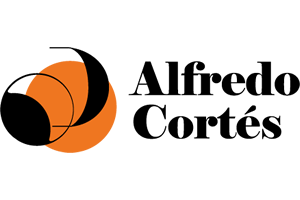The writer María Frisa, a resident of Zaragoza since she was three years old, is the author of some twenty books. She has been awarded several times for works such as ‘Self and the unexpected’ or ‘As then’, as well as for the juvenile series ’75 tips to survive’. She is also known for novels such as ‘Brief list of my worst defects’, ‘How I survived Pavlito’s mother’ or the crime novel ‘The spider’s nest’, among others.
In Go Aragón, we talked to the author of her latest narrative work: ‘Who is Olimpia Wimberly’, a psychological thriller that takes place between present-day Washington D.C. and the New York of the 80’s and in which themes such as luxury, debauchery and love are addressed.
Maria Frisa, you just released a book, what can we know about it?
‘Who is Olympia Wimberly’ is a fast-paced thriller. Olympia is a girl who leads an illegal team of people who solve crises that neither the police nor the FBI can solve. They range from political scandals to kidnappings and so on. Olimpia deals with people who have money, lots of money, and who don’t want to involve the police or the government in their problems. That’s why they hire them. And when we talk about people with a lot of money, I am referring to the highest echelons, those who have money out of boredom.
The plot is set in the United States, why?
The novel takes place in the present day, in Washington D.C., above all, and in the New York of the 80s and 90s. There are many scenes that take place in Studio 54, because Olympia’s aunt is one of America’s greatest heiresses. I chose that setting because of the needs of the script. I couldn’t imagine a team like Olimpia’s in Spain. However, in the United States it is more likely because of issues such as the legalization of guns. The same thing happened to me with the novel ‘El nido de la araña’ (The Spider’s Nest), in which I needed a multinational. What I am proud of is that my first novel takes place in Zaragoza, the city that I love and that I like it to be known. I love that my readers discover that Zaragoza is much more than El Pilar or El Tubo.
Is there a lot of reality in your novel?
Yes, a large part of the story is the result of hours and hours of research. The environments in which my characters move have existed and exist, they could be there right now. The world of New York in the 80’s fascinates me, and I have discovered many things that I have reflected in the book. For example, an anecdote happened at Studio 54 and it’s about an 80-year-old lawyer who always went there very seriously and suddenly became a widow and danced every night, the life of the party. I write curiosities and mention movies, paintings and songs that the reader can then continue to investigate. It is a book with which I have learned and enjoyed a lot.
The story touches on themes such as love, luxury and debauchery. In addition, it is very quick to read, with very short chapters. Does this have an intention?
Entertainment, mainly. With this novel I wanted the story to hook the reader quickly, to keep him or her awake at night. My intention has been to achieve the same effect as some TV series that don’t let you sleep because you want to know more and more. And I think I have succeeded. In my opinion, literature can be as much fun as a series and you can enjoy it with the same intensity. I don’t mind breaking the taboo of books as objects of high culture. Books can be entertaining and of very good quality.
The main character is a woman, is there an undercurrent of social denunciation, of feminism, in the plot, even though it is a thriller?
In my novels I always try to make the protagonist a woman because for many years they have had to be secondary. In my stories I want strong women, as I believe I am, who are capable of leading a group. As for criticism, yes, in the book there is a clear criticism of the little weight that women had at that time.
And if in this case I have opted for a thriller instead of a crime novel like my previous works, it is because I wanted to have a lot of freedom when it came to writing. For me, a crime novel has to have a different structure and a different rhythm. That’s why this book is special.

You have written some twenty books, translated into 10 languages, and received national and international awards. After so much recognition and work, is it a challenge to surprise the reader?
Yes, without a doubt. Each time it is a more complicated challenge. The first time you publish a book is very easy because you don’t have the same expectations. My two crime novels have a very surprising ending. That makes it very difficult for me. Also, I have limited resources and tricks, so I have to try hard not to get caught by the reader.
Do you feel you are evolving in a particular direction as a writer?
I let myself flow. As a reader I’m very eclectic. I like to read many different genres, essays, different literature… So as a writer I also feel comfortable in other genres and registers. As of today, I don’t close any door.

You have a degree in psychology, do you think that helps you to write, to get into the minds of your characters?
That’s a complicated question. I don’t really know. Psychology helps me to look at people in a different way, that’s for sure. When I think about my characters I usually pick up traits from other people. So, thanks to psychology I’m more observant. I look at everything. In fact, when I write a book in my head there is nothing else. I live what I write, and I feel everything that happens in my stories.
Because of the variety of books you have published, you must have a very varied public. Are we good readers in Spain?
We are few. In Spain I think we read very little. We should read more books. And if before it was little, now it’s less. Screens, televisions and social networks do not help to encourage reading.
Your books can be read in digital format. What do you think is the future of paper books?
I personally think that paper books will not disappear. In fact, now their sales are growing. I’m not one of those people, I’m a paper reader, but many people read eBooks and I think that’s fine. There are times when space in a house is limited, for example, and the digital format helps you not to take up space. It is also convenient for traveling. In my opinion, any form is valid if the person feels comfortable. What is true is that the screen promotes more piracy.
Before we finish, can we know if you have a specific writer that inspires you?
That’s difficult. In French crime novels I really like Pierre Lemaitre, for example. In Spain we have great writers like Juana Cortés or Inés Plana. There is a great pool of novelists in our country.
Are writers born or made?
I believe that training is important, but there must also be talent. Writing is like playing the piano, you have to know the technique but then you have to make it come to life. In writing it is difficult to make the reader believe the story from the first moment. You also have to be tenacious. I have often written books that didn’t work. I’ve taken my distance, and as the months have gone by I’ve realized it. What is clear is that you learn to write by writing and reading in depth.
Any future challenges?
I always have ideas, but I still don’t know which one is the most appropriate.















